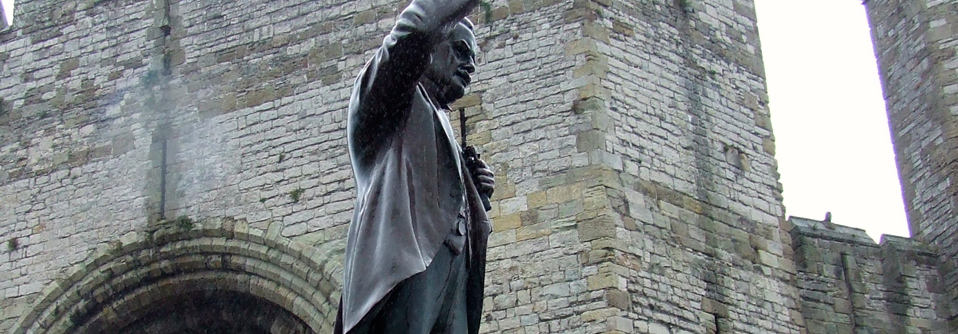Lloyd George and Land Reform: The Welsh Context

David Lloyd George was undoubtedly the outstanding Welsh political figure of the late nineteenth century and the first half of the twentieth century.1 Among the multifarious themes that intersected with his career, one of the most long-lasting was his devotion to land reform and to attacking the role of landowners in society and politics.
This concept played a crucial role in Lloyd George’s political life at a number of points and this article concentrates on three of the most significant of these events: the role of the famous land taxes in his 1909 ‘People’s Budget’; the land enquiry and land campaign that Lloyd George initiated in 1912-14 to provide the centrepiece of the Liberal election strategy in the next general election, which was due in 1915; and finally Lloyd George’s second land campaign of 1925-9, which he hoped would prove crucial to a great Liberal revival in the post-First World War era.2 Lloyd George’s persistent commitment to land reform raises an important question about whether there were consistent themes in the career in this most protean of politicians. This article seeks to provide some indications towards an answer, by determining to what extent this central element in Lloyd George’s political agenda was shaped by his early life in north west Wales and his engagement with its political culture.
£3.00
or to access all content on this site, join today

For £35 a year you can access all lectures and articles on this site, attend lectures and receive our yearly Transactions
Filter by Volume
Filter by Subject
- 16th Century
- 18th century
- 19th century
- 20th century
- Abertillery
- Acts of Union
- Archaeology
- Architecture
- Arts
- Autobiography
- Bible
- bilingualism
- Biography
- Burma
- Business
- Cardiff
- chemistry
- Climate change
- constitutional
- contemporary
- Cycling
- Cymmrodorion Society
- David History
- David Jones
- Development Bank of Wales
- Devolution
- Dylan Thomas
- ecology
- Economics
- Education
- Edward Lhuyd
- eighteenth century
- Environment
- Film
- Folk Song
- Geology
- health
- Heritage
- Higher Education
- Historiography
- History
- History of Art
- History of Medicine
- History of music
- History of the Book
- history; History
- Horticulture
- Industrial History
- Intellectual History
- Iolo Morganwg
- Islam
- Jews
- John Nash
- journalism
- Language
- Law
- Law constitutional
- Legal History
- Legal Law
- Literary History
- Literature
- Liverpool
- Lloyd George
- London Welsh
- Male voice choirs
- Manuscripts
- Media
- medieva
- medieval
- Medieval History
- Medieval Literature
- medieval Poetry
- Military History
- Museums
- Music
- Myth
- Owain Glyndŵr
- Peter Warlock
- Philadelphia
- Poetry
- political
- Political History
- Politics
- prose fiction
- Railways
- Religion
- Religious History
- Science
- sixteenth century
- social
- Social History
- Sport
- Suffragette movement
- Swansea
- Tourism
- travel
- Tudors
- twentieth century
- Urban History
- Vikings
- Waldo Williams
- Wales
- war
- wellbeing
- Welsh Development
- Welsh development and investment
- Welsh Language
- welsh society
- Welsh writing in English
- Welsh; History
- Wild Wales
- women's history
- WW1
- WW2

